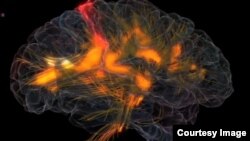This is good news for an old coot like me. According to this, I might stand a chance of avoiding it as I don't smoke, do some exercising, and have a decent education. I've even read elsewhere that pets can often detect the onset of the disease by the odor the body releases. Just how my little Pixie is one of them. ☺
Read more @ BBC News - One in three Alzheimer's cases preventable, says research
Read more @ BBC News - One in three Alzheimer's cases preventable, says research






